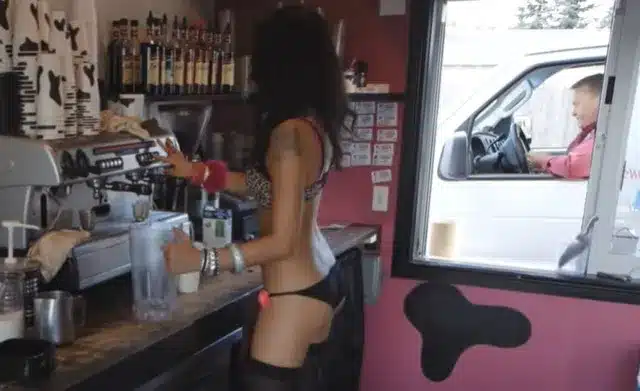In Everett, Washington, a new dress code targeting bikini baristas has sparked a significant legal battle. The “Hillbilly Hotties” coffee stands, known for their scantily clad baristas, faced ordinances banning skimpy clothing at quick-service food and drink venues. The city claimed the regulations aimed to curb potential sexual conduct and crime linked to these establishments.

The baristas, however, argued that the dress code infringed upon their First Amendment rights, sparking a lawsuit against the city. They contended that their choice of work attire was a form of free expression and that the regulations unfairly targeted female workers.

“This is about women’s rights. The city council should not tell me what I can and cannot wear when I go to work, it’s a violation of my First Amendment rights,” said barista Natalie Bjerke.
“It’s our bodies and it’s our choice,” said Emilija Powell, an employee at the Everett bikini barista chain “Hillbilly Hotties.”

The case drew national attention, highlighting the ongoing debate over women’s rights and public decency.
Assistant City Attorney Ramsey Ramerman defended the ordinances, stating they addressed issues beyond mere offense at bikinis. He cited “This is not about being offended by people wearing bikinis. Some of these stands had the characteristics of a poorly run strip club, and trying to enforce standards under the previous law was simply ineffective.”

Despite these claims, the bikini baristas remained resolute in their fight for the right to choose their work attire.
After years of legal battles, a federal judge ruled in favor of the baristas, declaring the dress code unconstitutional under the Equal Protection Clause. This landmark decision reinforced the baristas’ right to express themselves through their work attire, marking a significant victory for the “Hillbilly Hotties” and similar businesses nationwide.
